International Schools in Slovenia
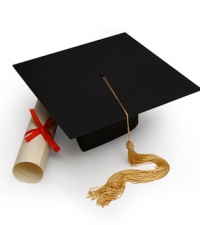
You will find below a list of the most popular international and bilingual schools for expats in Slovenia with fee information. The list includes nursery schools, primary and secondary (high) schools for you to find the right school to prepare for the International Baccalaureate and other accreditation in Slovenia. Some schools may follow the American or British curriculums with English speaking programs while others are regulated under the French language and system.
Education in Slovenia
The school system in Slovenia is divided into three sections of education: primary, secondary and tertiary. Compulsory basic education is organized in a single-structure nine-year basic school attended by pupils aged 6 to 15 years.
Primary education is provided by public and private kindergartens, basic schools and basic schools with an adapted education programme, music schools and educational institutions for children with special educational needs.
Secondary education is provided by upper secondary schools and secondary schools. It is classified as general or vocational technical and secondary professional or technical education. Upper secondary education takes 2 to 5 years (typical age of students: 15-19). Educational programmes include vocational, professional and gimnazija (general) programmes.
The third segment of education, tertiary education, is provided by both public and private institutions. It consists of higher post-secondary vocational education and higher education. Higher post-secondary vocational education is provided by higher vocational colleges, while higher education is provided by faculties, academies and independent higher education institutions.
International Schools
International schools can be the perfect solution for an expat student (multinational corporation executives, children of diplomats, NGO staff) in Slovenia. Many schools provide similar standards of schooling around the globe, providing for an easy transition between schools whether they are in France or Vietnam. There may be some local population, but the schools are usually geared for an international student body. Schools may follow a curriculum model from the US, UK, France, etc. Primary instruction may be any language (and multiple languages are usually taught), but it is usually in English, French, Spanish, German, or Japanese. Schools also provide internationally accepted accreditation such as the international baccalaureate.
Admission and enrolment procedures vary from school to school. Space is often limited and preference may be given to students based on nationality. Tuition tends to be expensive based on local standards, but offers high standards of learning, boast smaller class sizes, first-rate facilities, and extracurricular. Boarding facilities are available at some schools, but most only provide day classes.
Accreditation & Membership
- The CoIS (Council of International Schools) is a non-profit association of international schools and post-secondary institutions which provides educational accreditation, teacher and leadership recruitment services, links to higher education, governance assistance and help with founding new schools.
- European Council of International Schools (ECIS) is a collaborative network promoting the ideals and best practice of international education, complemented by grants and awards.
- Council of British International Schools (COBIS) is a responsive organisation that serves, supports and represents its member schools.
- New England Association of Schools & Colleges (NEASC) is a regional accrediting association which establishes standards for all levels of education, from pre-K to doctoral.
- Agency for French Education Abroad (Agence pour l'enseignement français à l'étranger, AEFE) is a national public agency under the administration of the French government that assures the quality of schools teaching the French national curriculum outside France.
- National Association of Independent Schools (NAIS) represents over 1100 independent schools and associations in the United States and abroad.
International schools in Ljubljana
Gimnazija Bezigrad
Peričeva ulica 4
1000 Ljubljana, Slovenia
pp 2504, 1001 Ljubljana
Tel: +386 1 3000 400
Email: info@gimb.org
Tuition Rates: Inquire at school
Gimnazija Bezigrad school offers the International Baccalaureate curriculum to secondary students thought the Middle Years Programme (MYP).
The school is also accredited by the IB Diploma Programme which is designed as an academically challenging and balanced programme of education that prepares students, normally aged 16 to 19. For a number of years it has been the school with the highest admission requirements in Slovenia and the school with the best national external examination results in the country. Bežigrad has produced a number of distinguished politicians, academics and businessmen.
Vector International Academy
Štula 23, 1000 Ljubljana, Slovenia
Tel: +386 4 0862 445
Email: info@vectoracademy.si
Tuition Rates: From 12,000€ ($13,700) to 13,200€ ($15,075) [school year 2021/22]
Vector International Academy is an independent international high school. The programmes offered are accredited by the International Baccalaureate Organisation, by the UK’s Pearson Edexcel examination board and by the Slovene Ministry for Education.
British International School of Ljubljana
Cesta 24. junija 92
1231 Ljubljana-Črnuče, Slovenia
Tel: +386 4 0618 356
Email: admissions@britishschool.si
Tuition Rates: Inquire at school
British International School of Ljubljana provides an outstanding international education for children aged 2 to 18 of all nationalities. The school follows the English National Curriculum. The primary curriculum is based on the English National Curriculum and enriched through a topic-based approach. The secondary curriculum is based on the English National Curriculum and culminating in external GCSE and A Level examinations. The students are also encouraged to participate in the International Award for Young People, known in Slovenia as the MEPI and in the UK as the Duke of Edinburgh's Award or in the annual COBIS Poetry Competition and the World Scholar's Cup, among others.
Danila Kumar International School
Gogalova Ulica 15
1000 Ljubljana, Slovenia
Tel: + +386 1 5636 834
Email: inter@os-danilekumar.si
Tuition Rates: From 5,505€ ($6,285) to 7,500€ ($7,425) [school year 2021/22]
Danila Kumar International School is a state owned school that has been offering an English language-based IB programme for nearly 20 years. The school provides an international kindergarten, elementary and secondary school programme for children of foreign nationals living in Slovenia. The Slovenian Ministry for Education, Science, Culture and Sport subsidises the school, allowing them to deliver an international curriculum that is authorised and approved by the internationally recognised International Baccalaureate Organisation at very competitive rates.
LIS Ljubljana International School
Campus L16 - Langusova ulica 16,
1000 Ljubljana, Slovenia
Campus K10 - Kersnikova 10,
1000 Ljubljana, Slovenia
Tel: +386 1 2007 870
Email: office@lissa.si
Tuition Rates: From 10,600€ ($12,105) to 12,900€ ($14,730) [school year 2021/22]
Previously known as Quality Schools International (QSI), the Ljubljana International School (LSI) is a school for pre-school, elementary and secondary education. Classes are in English for children from 3 to 17 years of age. They offer small class sizes, and well-qualified educators, many with teaching degrees and experience in the US, a welcoming facility and a vibrant international community. Their enrolment includes students from the diplomatic community and international business community, as well as Slovenes. The school is fully accredited in the US, and is a designated SAT testing site.
European School Ljubljana
Aškerčeva cesta 1
1000 Ljubljana, Slovenia
Tel: +386 3 162 5717
Email: eslj@sclj.si
Tuition Rates: Inquire at school
The European School Ljubljana is a co-educational, Accredited European School in Ljubljana that serves students age 6 to 18. It was established in 2018 and is part of the Ljubljana School Centre. In the 2019/20 academic year the school offered programs in English and Slovak, and language instruction in French, German, Lithuanian and Spanish. The school is certified to offer the European Baccalaureate as its secondary leaving qualification.
French Schools in Ljubljana
The French International School of Ljubljana (École Française, EFL)
Ulica Dušana Kraigherja 2
1000, Ljubljana, Slovenia
Tel: +386 1 4291 499
Email: secretariat@efljubljana.com
Tuition Rates: From 5,350€ ($6,110) to 8,650€ ($9,880) [school year 2021/22]
The French school of Ljubljana is a multilingual kindergarten and school that, since 1992, has welcomed children of all nationalities from 2 up to 18 years old. The French School is approved by the French Ministry of Foreign Affairs and follows the French Educational Program. The school is also accredited by the Slovenian Ministry of Education and Sports. This accreditation allows the pupils to switch easily between the two systems. Children of the French school become bi-and often trilingual. This is an asset that gives a head-start to our kids not only in terms of communication skills but also in many other aspects of their lives.
International schools in Maribor
Leon Štukelj International School Maribor
Klinetova ulica 18,
2000 Maribor, Slovenia
Tel: +386 2 707 0051
Email: international.school@os-leon.si
Tuition Rates: From EUR 6100-8600 [school year 2023/24]
Leon Štukelj International School Maribor is a candidate for the International Baccalaureate (IB) Primary Years Programme (PYP) and offers PYP and MYP programmes for ages 4-16. They believe that holistic education prepares students for success in an ever-changing world. This educational approach embraces, yet transcends traditional school subjects. Students are encouraged to develop intercultural awareness along with a genuine understanding of their own history and traditions.
- My Life Abroad -
A selection of expat stories

"A fun compulsive read!"
J. Matcham, Amazon
"I strongly advise people ready to live abroad to read this book!"
Patrice, Amazon

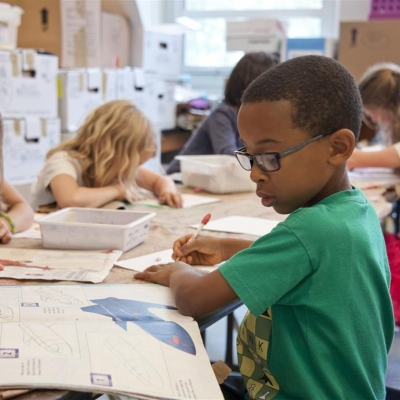 5 Top International Education Systems For Expat Kids
5 Top International Education Systems For Expat Kids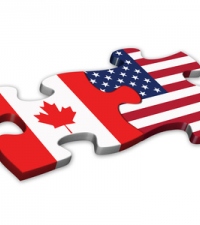 Same language, different ball-game
Same language, different ball-game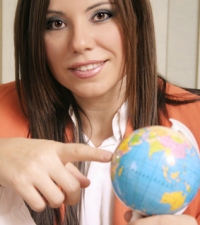 Finding a job after earning your TEFL Certificate abroad
Finding a job after earning your TEFL Certificate abroad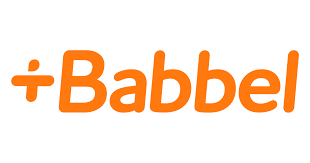 Babbel
Babbel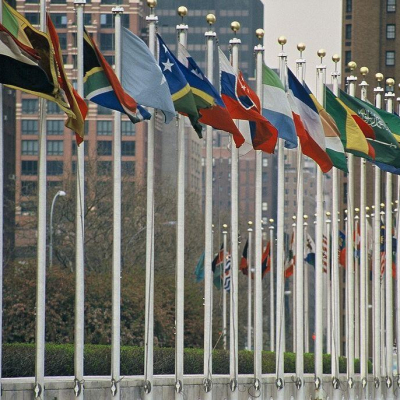 Embassies and Consulates in Slovenia
Embassies and Consulates in Slovenia